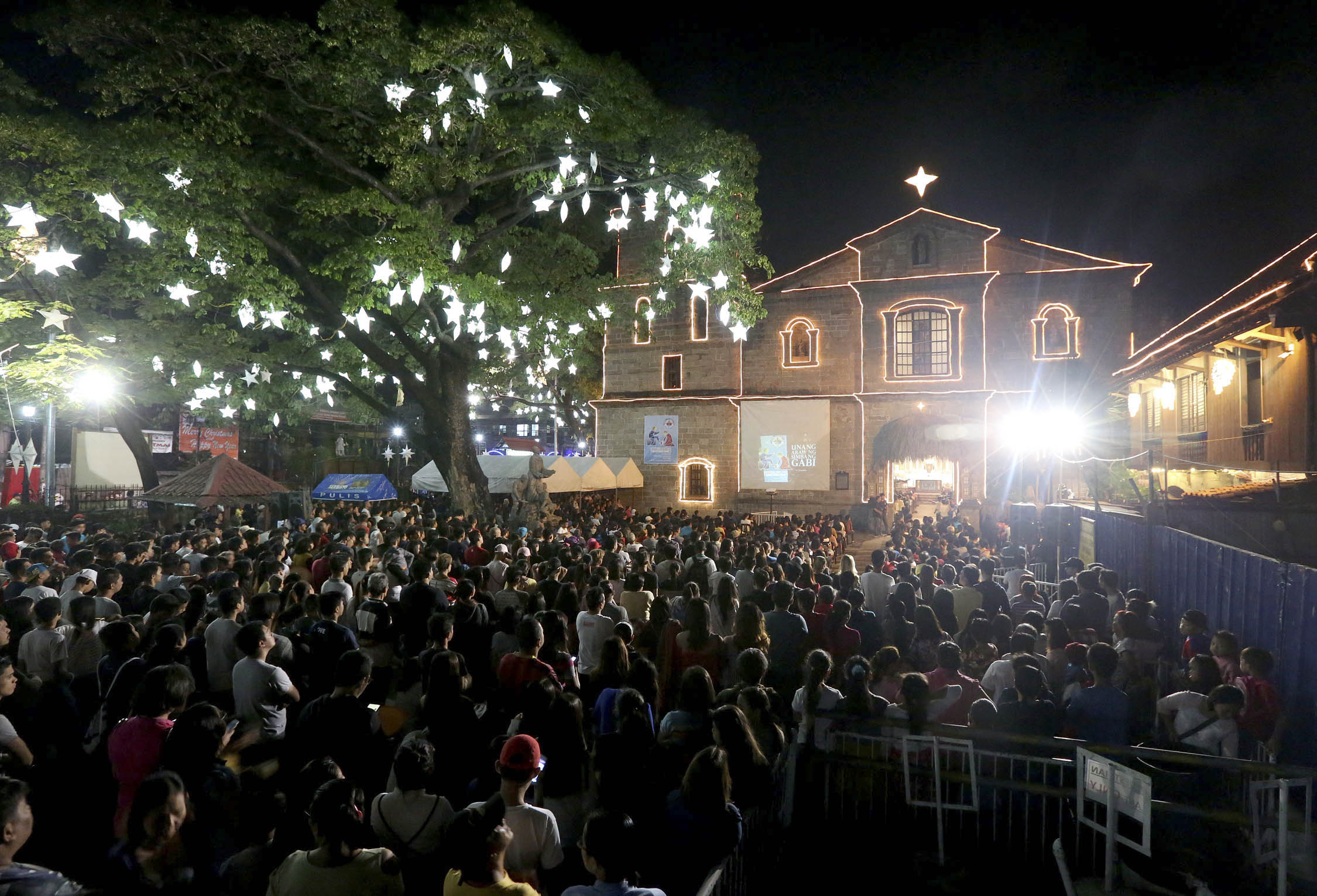
SHOW OF FAITHChurchgoers hear “Simbang Gabi” (Dawn Mass) outside a parish in Las Piñas in December last year in a scene that was sure to be repeated every morning starting on Sunday. -INQUIRER PHOTO
The Church’s traditional nine-day “Simbang Gabi” (Dawn Masses) leading to Christmas, which will start on Sunday (Dec. 16) is an appropriate time for “a lot of prayers for our country,” according to a ranking Manila archdiocese official.
Auxiliary Bishop Broderick Pabillo said the Masses should be an opportunity to pray because of “what is happening around.”
Pabillo said prayers were also needed “when so many senseless tirades are done against godly and religious matters.”
Tradition
Pabillo was apparently referring to President Duterte’s repeated rants against the Catholic Church, its officials and its practices.
Another Church official, Fr. Jerome Secillano, said the faithful should pray for several things—reconciliation, peace, unity, healing and prosperity.
Secillano, executive secretary of Catholic Bishops’ Conference of the Philippines’ permanent committee on public affairs, said the Dawn Masses were both a cultural and religious tradition in the Philippines.
Masses were usually celebrated at 4 a.m., earning the tradition the name “Misa de Gallo.” Since Masses were being held while it is still dark, they had also come to be known as Simbang Gabi.
But Secillano said the Church had started to adjust.
For many years now, he said, the Masses were no longer being celebrated before dawn.
Sacrifice
The Church, he said, had learned to adjust to modern urban schedules and agreed as a “pastoral accommodation” to hold Masses the night before.
“People are not forced to hear Mass yet for nine days, they flock to churches with feverish demonstration of religiosity,” Secillano said.
“Their willingness to sacrifice is truly noteworthy,” he said.
He said it was wrong to believe that good fortune awaited those who were able to complete the nine-day Masses.
“God blesses us in His own way and in His own time,” Secillano said.
“Not according to our will but His alone,” Secillano added.
Commercialization
While many Filipinos equate the tradition with festivities and native delicacies, like “puto bumbong” and “bibingka,” Pabillo said he believed the traditional Masses had not lost religious meaning, despite being too commercialized.
“We always have to fight against commercializing the faith,” Secillano said.
“The Mass is first of all thanksgiving,” he said.
He listed some reminders for those attending the Masses.